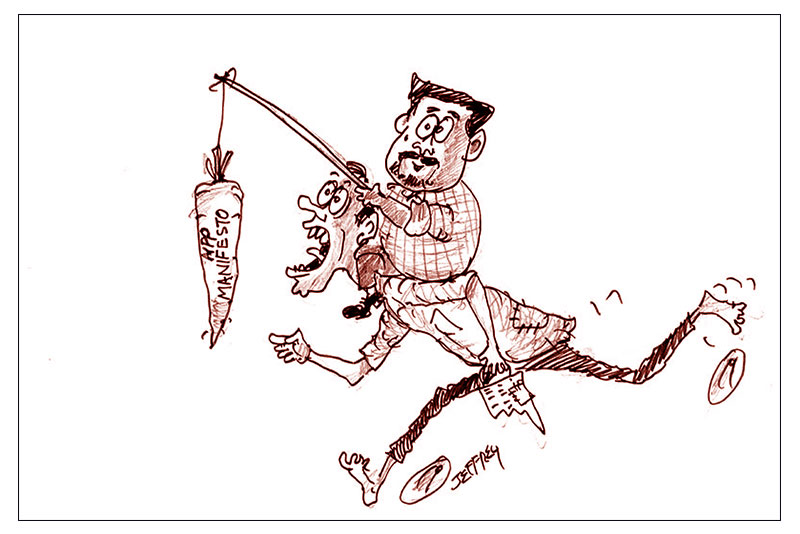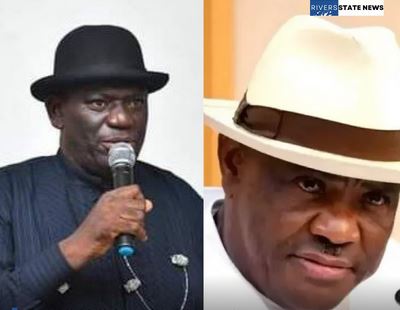
The current government’s spectacular electoral success, was in essence a clear rejection of the chaos, incompetence and corruption, that were hallmarks of the traditional parties that have exercised dominant electoral power since Independence in 1948. The remarkably successful Aragalaya was an emphatic rejection of the ‘old’ parties and hopes of a refreshingly enlightened “System Change”. This was the unspoken reliance on the NPP, (a lightly disguised JVP).
The unsavoury history of the unimaginable and intolerable violence of the JVP, matched by an equally cruel retaliation by Government forces, thankfully faded out around the last decade of the 20th century, is still a feared eventuality, in the memories of those who experienced the nightmare. Maybe, most of the currently active youth, had not even been born at the time. But the fear lingers.

It is not unusual that the current NPP leadership, is none too eager to remember that period of history, nor to market this ancestry. The shift into oblivion of the LSSP, is perhaps a signal that the era of sloganeering and “catch phrases of Marxist verbiage” as electoral currency, is now past. One hopes that a home-grown model, based on the rugged strengths of rural society, is much more marketable, and representative of the Swabasha nourished, youth leadership.
The leader in this transformation, AKD stamps his class with remarkably effective oratorical skills. The ready recall of incidents and instances, to follow logical trends of thought, and the ease with which he changes style and substance, to suit his varied audiences, is simply brilliant. This, with not a note (or prompt) in support, nor an hour to craft his fresh delivery to a new audience.
The massive crowds that attended the pre-election rallies, seem to have morphed significantly into votes. The 150-odd seats secured, would have surprised even the most committed supporters. However, can they “walk the talk” of electoral rhetoric? It also seems that even the few of the Old Guard, possibly crippled by left wing ideology, have taken on a new stance, with emphasis on existing local reality.
The hopes of a majority, enthused by the change of attitudes, professionalism and integrity of the new dispensation, will endure and thrive. The early signs are positive, but this leopard may well change its spots. The claim that the promised changes, especially of seizure of the proceeds of crime and lawful punishment of fraudsters, is demonstrably slow.
There must however be much discomfort among these rogues, that the handcuffs to adorn their wrists, may not be too far away. The President assures the people that the seeming delay, was to allow irrefutable and water-tight evidence to be assembled for successful prosecution, and to eliminate the all too frequent instances where the accused are acquitted and released. It is increasingly evident that the roots of criminality run deep and far, and even the institutions designed to aid in successful probes, can be compromised by massive enticements, which would be easily accommodated, within the sheer size of the sums involved.
The trails may be clear to the optimistic, but the craftiness of seasoned rogues ensures that although the truth will eventually prevail, it may be a very deep dig. If the lack of “legal provision” is a real impediment, the present parliamentary majority should facilitate speedy correction. However, in many instances, it seems apparent that it is not the lack of laws, but the tardiness in acting where sufficient laws already exist is the problem.
To return to the matter of lying or otherwise distorting reality, there seems to be a kind of permissible and generous threshold, beneath which unreal extravagance can be concealed. If conscience overrides mere legality, and zero tolerance of fraud prevails, there will be public aversion towards any departures from common decency and rectitude. Credit will be its reward, for the “Clean Sri Lanka” initiative if it goes beyond mere elimination of environmental pollutants and encompasses restoration of moral and ethical standards as well.
But, are we not presently guilty of a shallow pretense of religiosity, when our Constitution urges (or permits), the creation of Ministries of Buddhism and those charged with the “protection” of Christian, Muslim or Hindu affairs? This is hypocrisy of a high order especially in a country, wedded to concepts of equality, compassion and fairness in a pluralistic community. It is infinitely easier to preserve unity in a mixed populace, than to repair a fractured one. As one of our political leaders asserted, in a different context, “We have scrambled the egg and invite any to try “unscrambling it”.
As the late D. M. Jayaratne, as PM, as well as Minister of Buddha Sasana, saw no qualms about declaring that “Only idiots would believe Election manifestos, when their intent was merely to deceive voters into voting for them”.
One has to trust that this still prevails. We remain undaunted, in a country that prides itself in a religiosity cemented within a constitution which permits such divisive content. Dr Upatissa Pethiyagoda.















